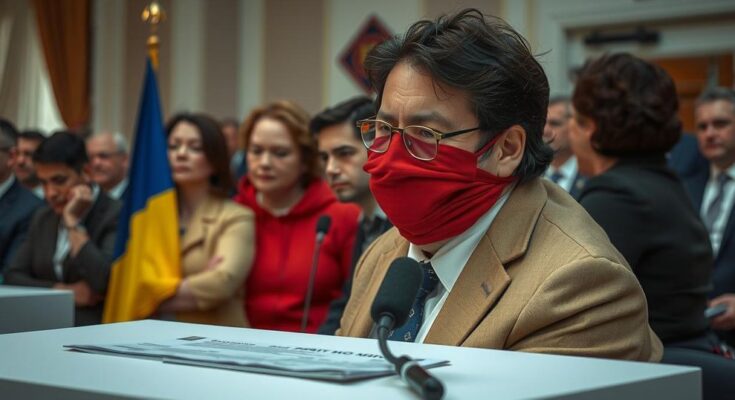Romania’s annulment of its presidential election’s first round, led by ultranationalist Calin Georgescu, raises significant concerns about democracy. The ruling, which came just before the runoff vote, has been lauded in the West but criticized by figures like Sergei Lavrov and Elon Musk, sparking debate over judicial power and electoral integrity.
This month, Romania’s constitutional court annulled the first round of a presidential election, which had been won by the ultranationalist candidate Calin Georgescu, who is perceived as favoring Moscow. While the decision has garnered approval in the West as a corrective measure for a flawed democratic process, it also raises significant concerns regarding Romanian democracy. The court’s ruling, issued just days before the scheduled runoff vote, has inadvertently supplied Russia with ample propaganda material to challenge the legitimacy of Western democratic norms, suggesting that they are only upheld when outcomes align with Western interests.
The decision has drawn a diverse response, including criticism from influential figures like Russia’s Foreign Minister Sergei Lavrov, who derided Western democratic intentions as hypocritical. Elon Musk also weighed in on social media, questioning the authority of the judiciary in annulling an election, framing it as dictatorial. The backlash from these comments highlights a compelling dilemma: the implications of invalidating voters’ choices midway through an electoral process, potentially undermining public trust in democratic institutions and procedures. Furthermore, the ongoing delay in scheduling a new vote reinforces the uncertainty surrounding democratic integrity in Romania.
The recent annulment of the presidential election in Romania, specifically the first round that resulted in Calin Georgescu’s surprising electoral victory, illuminates a complex intersection of electoral integrity and geopolitical influence. This scenario has prompted discussions about the true nature of democracy, particularly how electoral outcomes can be manipulated through judicial intervention. As Romania navigates this contentious landscape, external actors such as Russia are seizing opportunities to question and criticize the authenticity of democratic practices in Eastern Europe, thus influencing public perception both locally and internationally.
In conclusion, the annulment of the presidential election in Romania has triggered a multifaceted debate regarding the integrity of democratic processes. While it was celebrated in some circles as a necessary step to correct an electoral anomaly, it simultaneously presents significant challenges to Romania’s democratic image. The responses from figures like Sergei Lavrov and Elon Musk underscore the precarious position Romania occupies as it strives to uphold democratic values amidst external scrutiny and internal challenges. The situation serves as a reminder of the delicate balance between maintaining electoral legitimacy and adhering to democratic principles.
Original Source: www.nytimes.com




